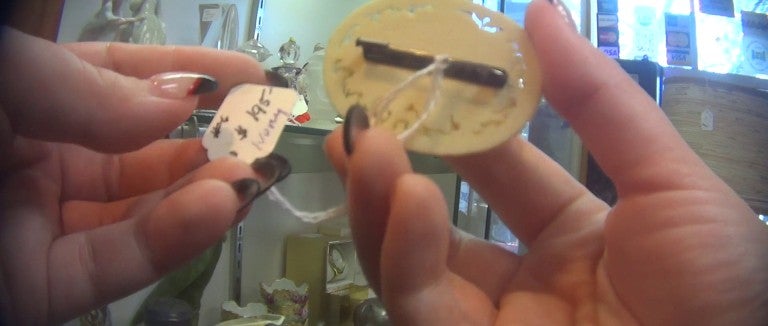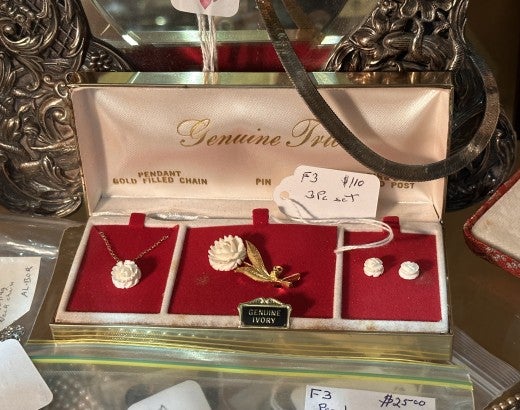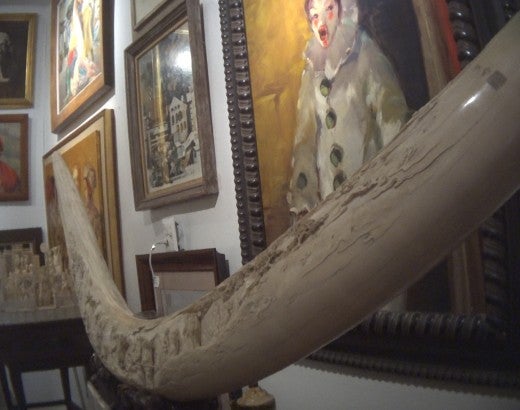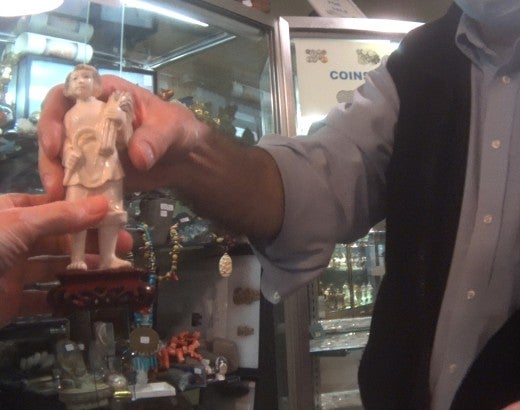With elephants just a step or two away from extinction, our newly released undercover investigation reveals a thriving market for ivory products in Florida, one that undermines conservation efforts and increases the pressure on this beleaguered species.
Under U.S. federal law, new ivory cannot be imported, exported or sold across state lines. Antique ivory can be sold provided the seller has documentation on the item’s age and origin. Without required documentation proving that the item is an antique at least 100 years old, the ivory items we discovered for sale could potentially be new ivory sourced from recently poached elephants.
In February, our investigator found carved elephant tusks, figurines, trinkets and jewelry made of elephant ivory for sale in shops from Tampa to Jacksonville, Fort Lauderdale, West Palm Beach and points in between. Out of 46 stores our investigator visited, 20 had ivory for sale, and our investigator discovered a total of 352 pieces of suspected ivory. The investigation demonstrates that Florida needs a law banning the intrastate sale of ivory.
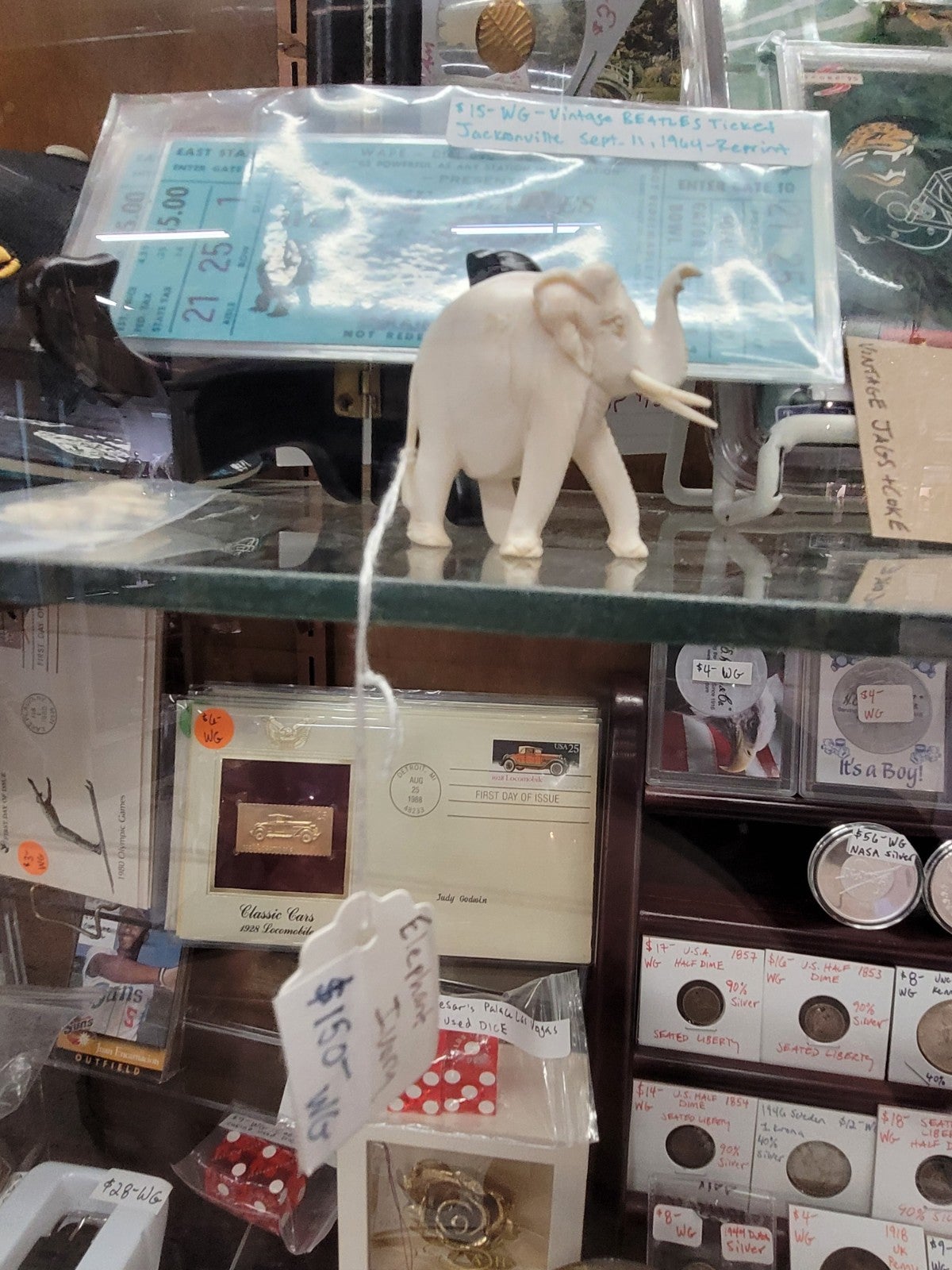
Many sellers claimed to not know about the law mandating that most ivory being sold must be antique, or that they needed documentation to sell it. Others were so clearly aware that the sale of new ivory is illegal under federal law that they advised our investigator to place the purchased items in checked baggage when traveling and to tell Transportation Security Administration officials that the products were made of “bone”—a common mislabeling practice of sellers. Only two vendors out of the 20 locations where we found ivory claimed to have the correct paperwork to sell ivory, and neither presented documentation during the potential sale. At some stores, some ivory was labeled with misleading or false information. Without proper documentation, it is impossible to know whether items were imported in violation of federal law.
The illegal wildlife trade is a multibillion-dollar, transnational enterprise that incentivizes the wanton killing of animals for their parts. Each year, between 10,000 to 15,000 African elephants are killed by poachers. The poaching of elephants is incredibly cruel; poachers often hack off the animals’ tusks while the elephants are still alive, and they do not spare babies and juveniles. Because elephants are highly sensitive and emotional animals with strong familial bonds, losing a member of the herd in such a gruesome display of violence is traumatizing even for those who manage to escape.

Local ivory markets provide an opportunity for illegal ivory to flourish because it’s just too easy to mix the illegal (ivory taken from animals hunted more recently) with the legal (ivory taken well before the threat to the species became clear). Enforcement efforts are often hampered by a lack of resources or the difficulty of visually distinguishing illegal ivory from legally acquired ivory.
We simply can’t afford to let ambiguity in state laws undermine these animals’ chance of survival.
Federal law does not address sales within a state, which is why state laws are needed to close the loophole in local markets. Thirteen states and Washington, D.C. have enacted laws in recent years to ban the intrastate sale of ivory. With what our investigation brought to light in Florida, it’s clear that the Sunshine State should be next.
Floridians can take a stand for elephants by urging their legislators to take a stand and end Florida’s participation in the illicit ivory trade.
Follow Kitty Block on Twitter @HSUSKittyBlock.
